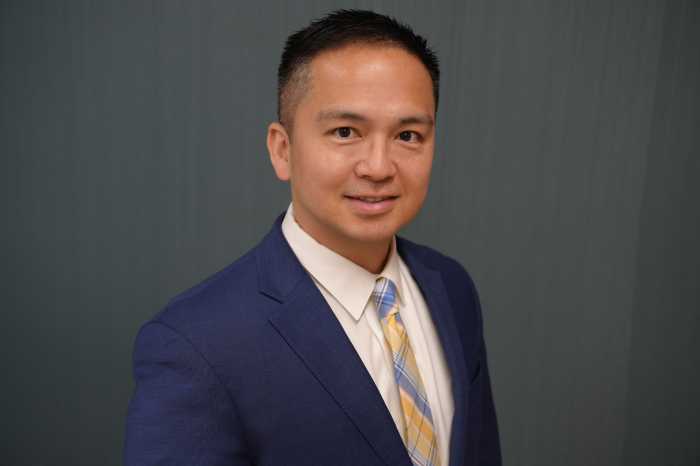Carlos Cabrera is senior director of talent recruitment for MetroPlusHealth. Since March 2020, he has significantly contributed to MetroPlusHealth’s growth, substantially reduced vacancy rates, and assembled a talented group of senior leaders, emphasizing diversity, equity, and inclusion. Prior to MetroPlusHealth, he was at Archcare and Workforce1 Healthcare Center. He holds a bachelor’s degree in business and economics from De La Salle University in Manila, Philippines.
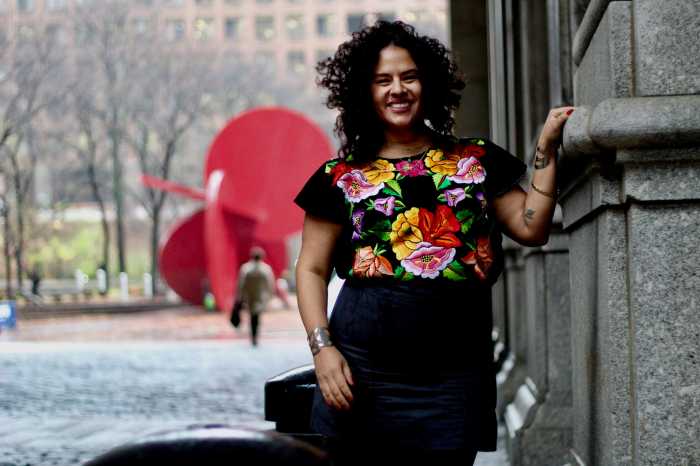
Sadye Campoamor
Chief Equity Officer, Office of the NYC Comptroller Brad Lander

Sadye is an El Salvadoran-born-NYC-bred antiracist, policy wonk, community organizer and facilitator. She works across the Agency bringing an equity lens to every bureau. She founded the NYC Comptroller’s Equity Council and was appointed as a commissioner on the NYC Commission on Racial Equity. Sadye believes that equity and inclusion are not only a matter of justice; they are NYC’s core competitive advantages. She graduated from Oberlin College and lives in Manhattan with her family.
What’s the most important lesson you’ve learned in your career so far?
That titles come and go, but integrity and community care are forever. I have worked in City Government for over 10 years in various capacities, across all five boroughs. Building an intergenerational and multiracial community of people to lean on, partner with, learn from, and grow alongside has made all the difference. My community keeps me honest and makes the work of being an equity practitioner far less lonely, and much more joyful.
Why is diversity, equity and inclusion important to you and/or your organization?
The last few years shined a spotlight on racial, disability and gender inequities that have long been pervasive – in housing, accessibility, access to capital, education, public health, and much more. Evidence shows that narrowing these disparities by investing in institutionally marginalized communities yields: safer streets, improved educational outcomes, revenue generation, job creation, and economic vitality that benefits all New Yorkers. For us, advancing equity is not only a moral imperative, but an economic one.
What advice do you have for organizations looking to establish or improve DEI initiatives?
- Anchor in Shared Language
Make time and space in your workplace to ground in what these terms mean to you and your teams. None of us share a single vocabulary for talking about the complexities of diversity, equity, inclusion, anti-racism, belonging and more.
- Build a multi-racial and intergenerational base of support internally and externally.
We can’t do the work of building an equitable and anti-racist New York City alone. We need each other!

Robert Childs
Chief Diversity, Equity and Inclusion Officer, American Express

Robert Childs is chief diversity, equity and inclusion officer at American Express. An Amex colleague for 39 years, Robert oversees the company’s internal and external DE&I efforts, including its DE&I Action Plan, which exceeded its initial spending goal of $1 billion in March 2022. A plan to spend an additional $3 billion towards DE&I initiatives was later announced in August 2022, bringing the total investment to $4 billion through the end of 2025.
What’s the most important lesson you’ve learned in your career so far?
The most important lesson I’ve learned is about people. Regardless of position or background, everyone seeks similar things: a sense of purpose, respect, to be heard and valued, and to feel safe. As leaders, it’s our responsibility to cultivate an environment where everyone feels included and empowered to bring their whole selves to work.
Why is diversity, equity and inclusion important to you and/or your organization?
We believe that the diversity of people and experiences is the fuel for the creativity and innovation that make us better as a team and help us deliver better results. We’ve had a long history of fostering a diverse, equitable, and inclusive culture that embraces differences and reflects our company values, which include “We Embrace Diversity” and “We Stand for Equity and Inclusion,” making it clear we do not tolerate bias of any kind.
What advice do you have for organizations looking to establish or improve DEI initiatives?
Fostering an inclusive culture is a continuous journey of learning, growth and progress. My team collaborates with leaders to create a welcoming environment for everyone. Organizations should focus on:
- Strategy: Combine strong words with impactful actions and create a comprehensive plan. DE&I should be core to your mission.
- Transparency: Share data on recruitment, retention, and hiring. Gather colleague feedback through surveys.
- Accountability: Track progress on DE&I initiatives and ensure fair hiring, promotion, and pay.
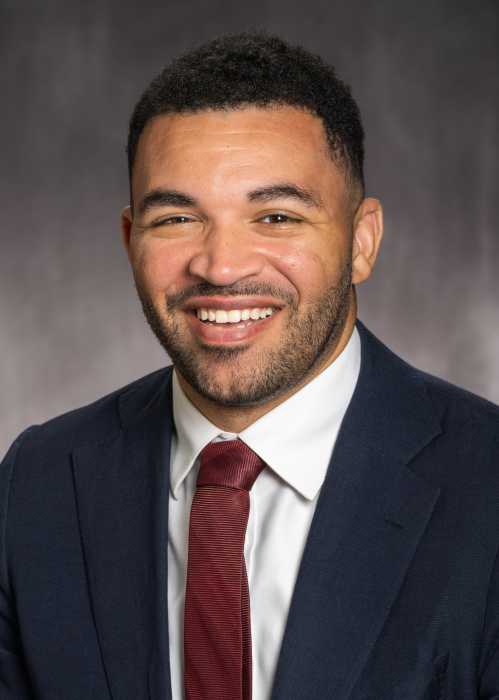
Jason Myles Clark
Executive Vice President, NYS Division of Minority and Women's Business Development, Empire State Development

Prior to joining Empire State Development (ESD), Jason served as executive director at Tech:NYC, and as first attorney for the Harlem Regional Office in the NYS Attorney General’s Office. Jason also founded DREAMChasers, is legal director of Good Call NYC, and served as president of the Metropolitan Black Bar Association. In 2021, Jason ran for City Council in District 27, his home district. He is a graduate of Princeton University and the University of Michigan Law School.
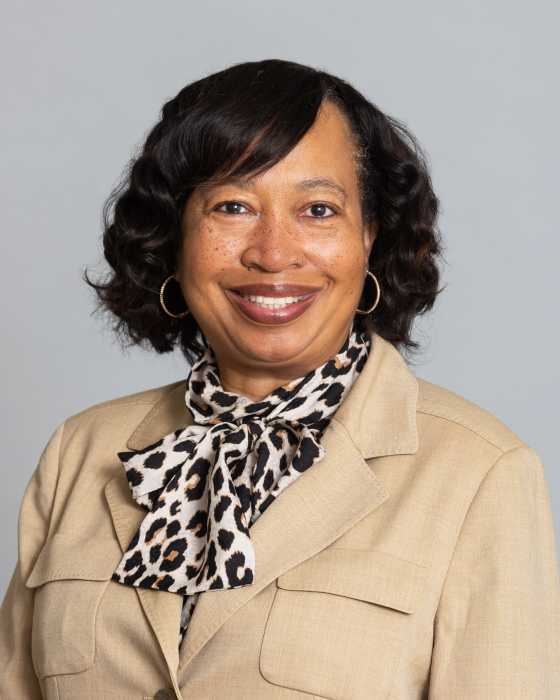
Richeleen Dashield
Chief Diversity Officer, NYU Silver School of Social Work

Dr. Richeleen Dashield serves as NYU Silver’s inaugural chief diversity officer to build transformative practices and systems, and partner to develop innovative DEI efforts. Dr. Dashield served in leadership positions as dean for multicultural affairs and as director of Social equity, human resources, and affirmative action. She developed transformative efforts such as climate support, restorative justice, antiracist practices, recruitment, and retention. She has received many awards for her leadership and delivered presentations nationally and globally.
What’s the most important lesson you’ve learned in your career so far?
The most crucial lesson I’ve learned in my career is centering the humanity of my work and the necessity of pivoting while staying aligned with the organizational mission, values, goals, and outcomes, especially in diversity, equity, and inclusion. It is critical to grow, innovate, and leverage your experience and expertise for professional development and impactful strategies.
Why is diversity, equity and inclusion important to you and/or your organization?
Diversity, equity, and inclusion (DEI) values the dignity and worth of all persons and provides opportunities for building accountability, community, transparency, and trust. DEI forms the foundation of our mission with a collective effort to shift paradigms, create meaningful change, and foster and strengthen relationships with diverse groups. Collaborating with people amplifies creativity to reimagine challenges and transform them into solutions to advance social justice is the key to inclusive excellence and organizational success.
What advice do you have for organizations looking to establish or improve DEI initiatives?
My advice is to have experienced leaders who understand the interconnectedness of systems, the importance of relationships, and the resources to sustain strategic programs. Progress takes time, understanding trends, patterns, and impact, and a steadfast commitment to removing inequitable barriers and advancing diversity, equity, and inclusion initiatives. DEI must be a part of your policies, practices, and decision-making. Above all, top-down and bottom-up efforts foster an inclusive environment for people to flourish.
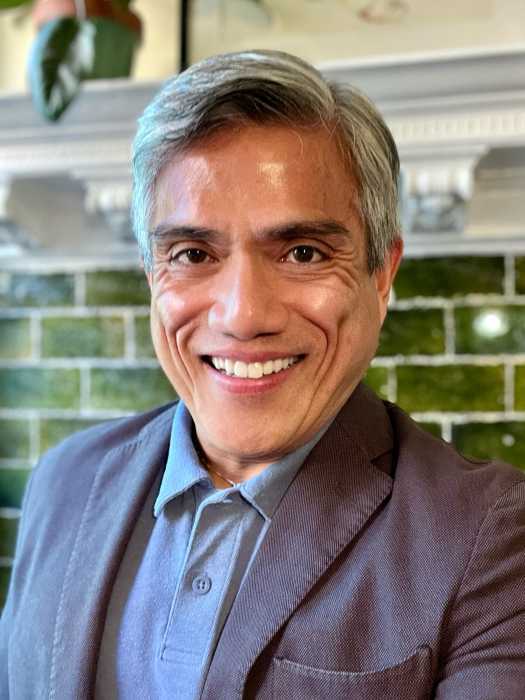
Erwin de Leon
Chief Diversity Officer and Lecturer, Columbia University School of Professional Studies

Erwin de Leon, Ph.D. is Columbia University’s School of Professional Studies’ (SPS) chief diversity officer and a lecturer in Columbia’s Nonprofit Management Program. He is also a Research Fellow at Knology. Prior to his current position, he served in various nonprofit organizations in New York and Washington, DC. He received a Ph.D. in public and urban policy and an M.S. in nonprofit management from the New School’s Milano School of Policy, Management, and Environment.
What’s the most important lesson you’ve learned in your career so far?
Before all else, it’s fundamental to know yourself and what matters most to you. Then can you seek out work that aligns with your core values, talents, and interests, thereby ensuring a fulfilling career and meaningful life. As a young adult, I pursued jobs that were supposed to bring success. But the misalignment with my core self and values left me wanting. As an older person, I am fortunate to have finally found my center.
Why is diversity, equity and inclusion important to you and/or your organization?
Personally, the practice of DEI is a manifestation of my commitment to social justice, particularly racial justice. Within an organization, this means changing organizational culture by increasing representation, acknowledging and addressing inequities, and fostering inclusion and belonging. DEI is core to SPS’ mission to support a diverse community of faculty, students, and staff while expanding the reach and impact of an Ivy League education so that more students can excel in their careers.
What advice do you have for organizations looking to establish or improve DEI initiatives?
In my DEI classes, I teach a framework that begins with “Awareness,” that is, establishing your baseline or starting point by gathering DEI-related data, namely demographics, policies and procedures, and stakeholder attitudes and opinions. Based on this information, an organization takes “Action,” by developing, implementing, monitoring, and constantly improving a DEI-focused organizational change strategy. Throughout, the “Amplification” of the DEI effort and its impact is communicated within and outside the organization.
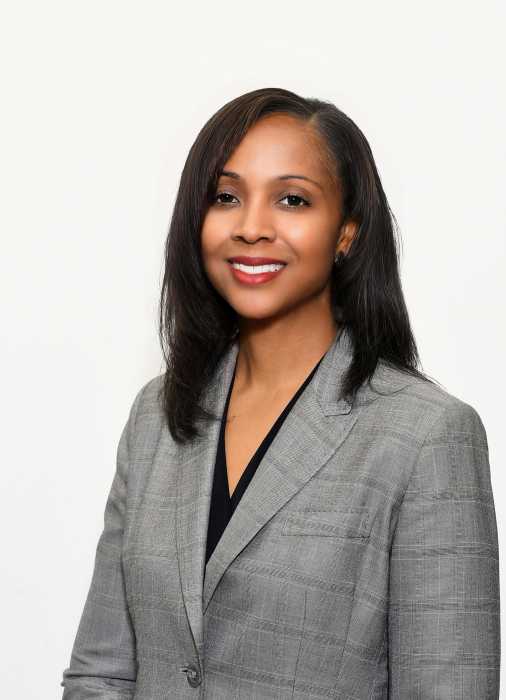
Kamille Dean
Senior Director of Diversity, Equity & Inclusion, Fordham University School of Law

Kamille Dean is the senior director of diversity, equity, and inclusion at Fordham University School of Law. Dean also served as the inaugural director of diversity and inclusion at St. John’s University School of Law. In addition, she was the director of the Ronald H. Brown Center for Civil Rights and the Ronald H. Brown Law School Prep Program for College Students at St. John’s Law where she administered innovative pre-law pipeline programs.
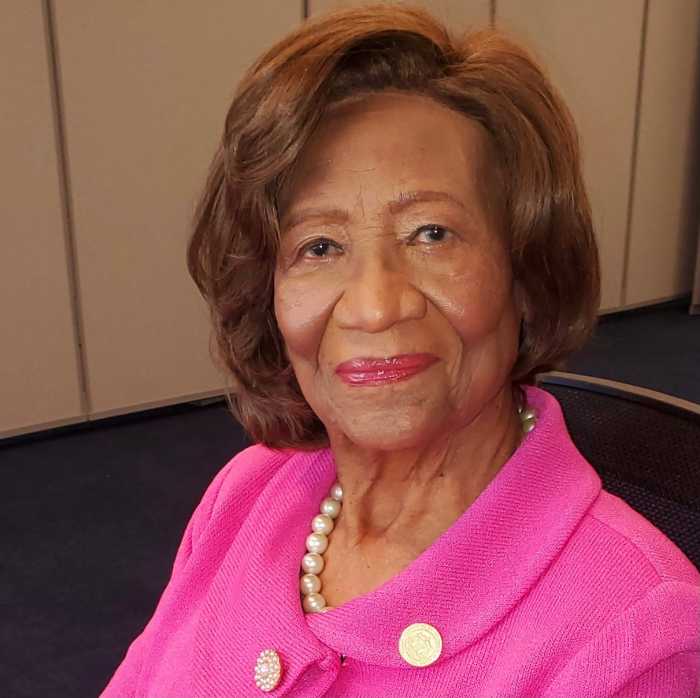
Hazel Dukes
President, NAACP New York State Conference

Dr. Hazel N. Dukes, a civil rights activist, has dedicated more than seven decades advocating to achieve racial diversity, equity and inclusion to bring long-lasting social change. Dr. Dukes is president of the NAACP NYS Conference. She is a woman of great strength and courage with an unwavering commitment to civil rights and public service. Her dedication to human rights and equality is exemplified by her role linking business, government and social causes.
What’s the most important lesson you’ve learned in your career so far?
“If I can help somebody as I pass along; then my living shall not have been in vain.”
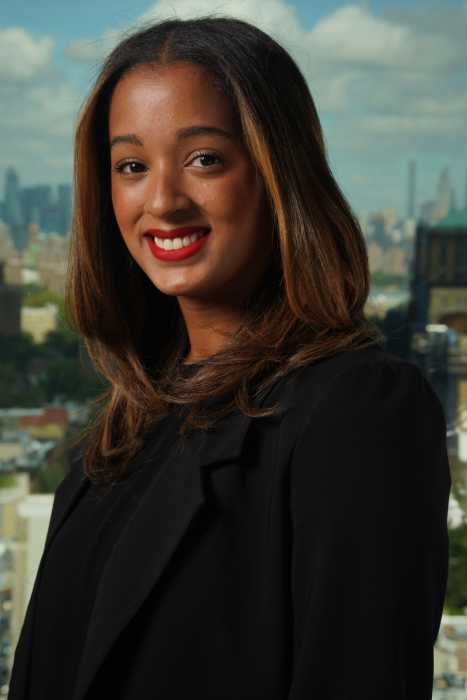
Natalie Edwards
Chief Diversity Officer, National Grid

Natalie Edwards is the chief diversity officer at National Grid, an electricity, natural gas and clean energy delivery company, building a smarter, stronger, cleaner energy future – transforming the company’s networks with more reliable, resilient energy solutions to meet New York’s clean energy goals. A recognized thought leader in inclusive workforce strategy, Edwards holds a dual concentration MBA from The Wharton School at the University of Pennsylvania and holds a bachelor’s from Howard University.
What’s the most important lesson you’ve learned in your career so far?
The African proverb “If you want to go fast, go alone; If you want to go far, go together.”
Why is diversity, equity and inclusion important to you and/or your organization?
Diversity, equity, and inclusion are essential for National Grid because the future of energy requires everyone’s participation. To serve diverse communities effectively, we need varied perspectives and approaches. Ensuring everyone has a seat at the table allows us to meet different needs and innovate successfully. The energy transition will be diverse, and inclusivity is crucial to achieving our goals for a clean, fair, and affordable energy future.
What advice do you have for organizations looking to establish or improve DEI initiatives?
Remember, one size does not fit all. Tailor your DEI initiatives to your organizations’ diverse needs. DEI should be done in collaboration with employees, not to them. Involve your employees in the design process to ensure their perspectives and concerns are addressed. At National Grid, focus groups, listening sessions, and strong Employee Resource Groups have been key. This approach led to significant success, with improved DEI engagement in the community in addition to hiring.
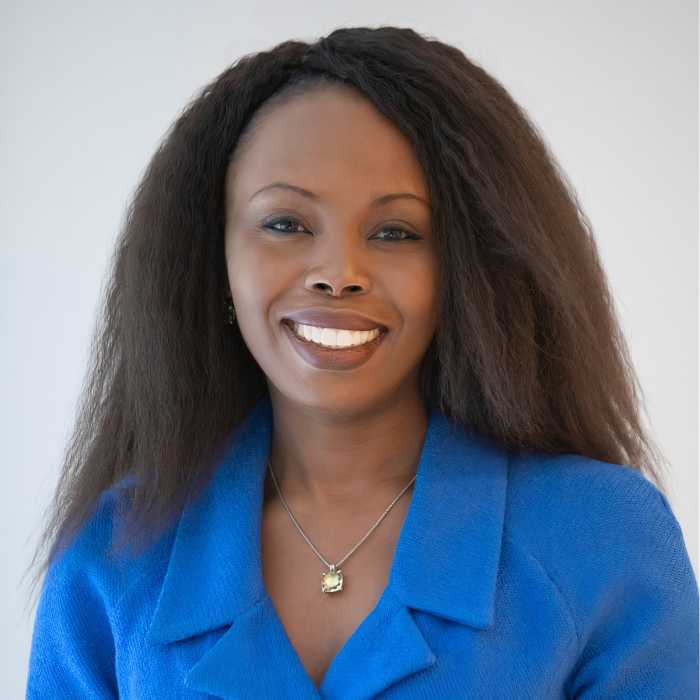
Abigail Epane-Osuala
Chief Diversity, Equity, and Inclusion Officer and HR Strategic Initiatives, GE HealthCare

Abigail Epane-Osuala’s more than 20-year career in HR includes executive leadership experiences across industries. Before GE HealthCare, Abigail was the head of HR for global supply chain, enterprise functions, and procurement at Johnson & Johnson. Prior to that, she was the vice president of HR and head of diversity and inclusion at Integra LifeSciences. Abigail earned her Bachelor of Science in management from Seton Hall University and her MBA from Fairleigh Dickinson University.
What’s the most important lesson you’ve learned in your career so far?
Be intentional about how you treat people and pay attention to what they need. We need to give our colleagues and team members what they really need to thrive at work – not just what we want to give them. No matter how fast we have to move, it’s important to practice the ‘power of the pause’ to consider how we can lead with empathy and authenticity to best support the people around us.
Why is diversity, equity and inclusion important to you and/or your organization?
At GE HealthCare, our purpose is to create a world where health care has no limits. To achieve this, we’re building a diverse workforce that reflects the diversity of the patients we ultimately serve, so we can continue to create solutions that transform and humanize care. GE HealthCare is committed to fostering an inclusive culture in which all colleagues feel empowered to do their best work because they feel accepted, respected, and a sense of belonging.
What advice do you have for organizations looking to establish or improve DEI initiatives?
It’s most important to establish a culture where DEI is considered a shared commitment. It’s not on one person or one team to drive DEI within an organization. If everyone owns it, the more successful your DEI journey will be. Make sure everyone understands the role they play in embedding DEI within your organization and how their work aligns to the company’s DEI strategy. Partner closely with stakeholders and cross-functional teams when developing DEI initiatives.



